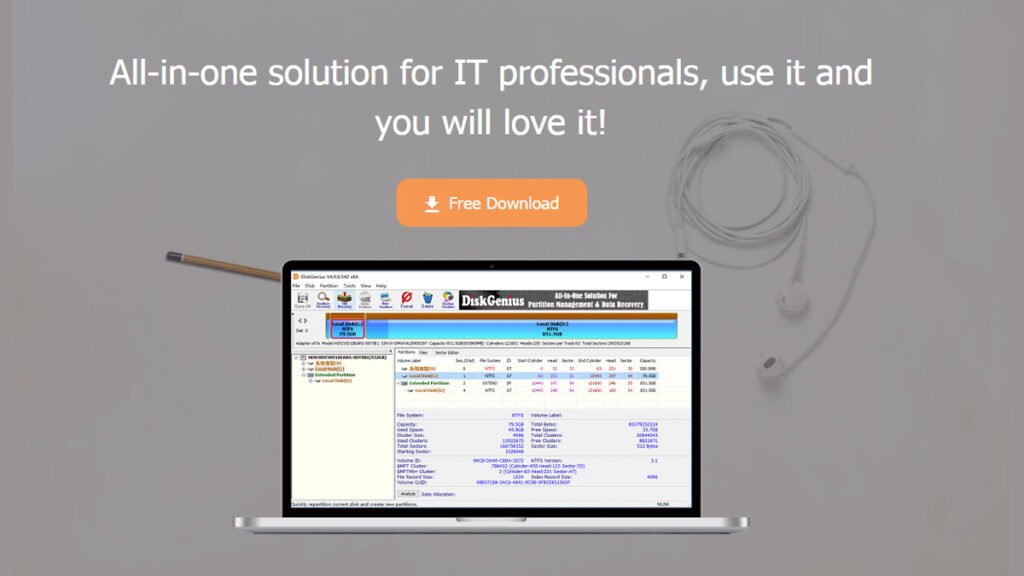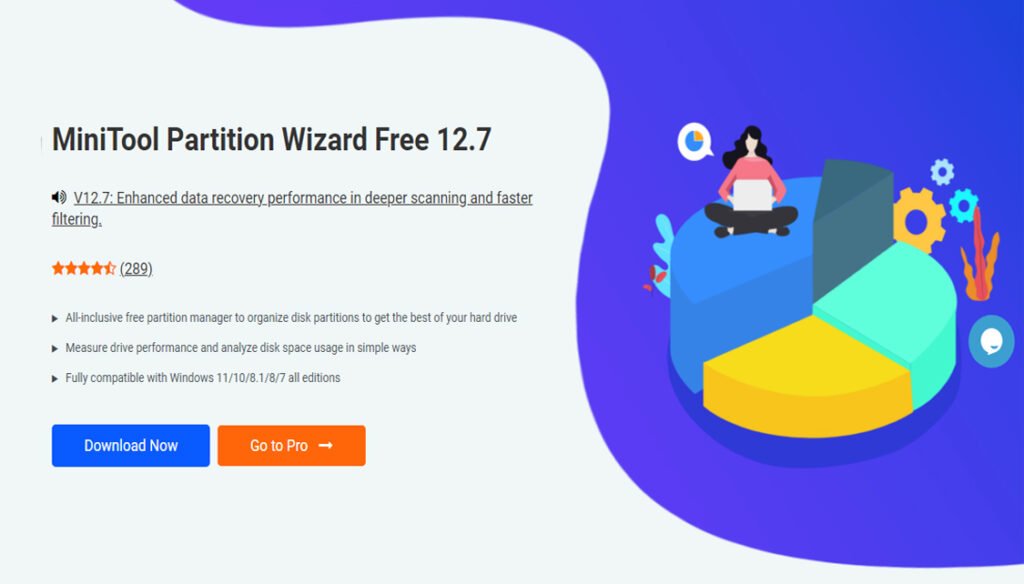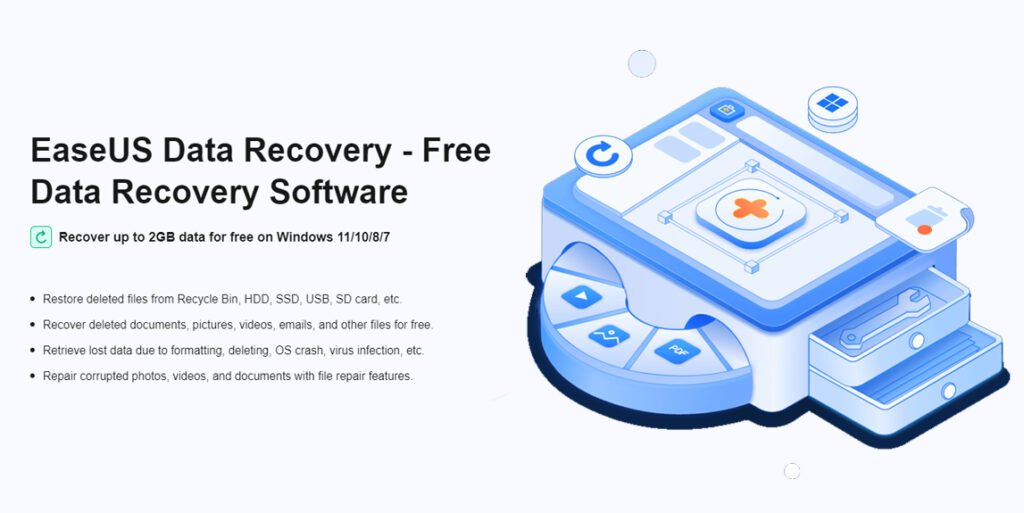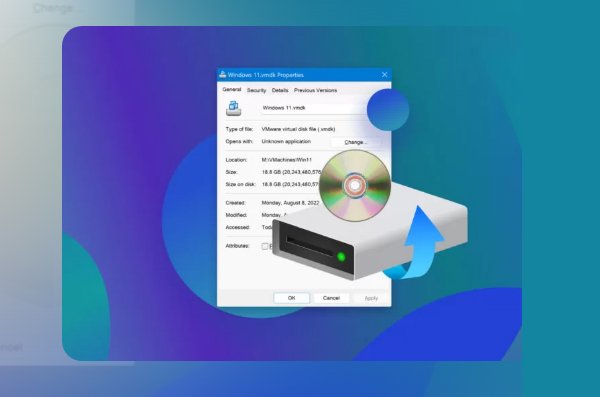Virtual hard disks (VHDs) are widely used by Windows users who work with virtual machines. However, like any other storage device, VHDs can also suffer from data loss due to various reasons such as file system corruption, accidental deletion, and hardware failure. In such cases, VHD recovery tools can be a lifesaver, allowing users to recover their lost data and restore their virtual machines to their previous state.
Fortunately, there are many free VHD recovery tools available for Windows that can help users recover lost or deleted data from virtual hard disks. These tools are easy to use and can recover data from VHDs in various formats such as VHD, VHDX, and VMDK. With so many options available, choosing the right VHD recovery tool can be a daunting task.
So, if you’re looking for the best free VHD recovery tools for Windows, you’re in the right place. In this article, we’ll take a look at the top 5 VHD recovery tools that can help you recover your lost data with ease. Whether you’re a seasoned IT professional or a casual user, these tools are sure to come in handy when you need to recover your precious data.
Top 5 VDH Recovery Tools for Windows

Certainly, here are the details of the top 5 VHD recovery tools for Windows:
1-DiskGenius

Pros:
- User-friendly interface
- Offers a wide range of data recovery features
- Supports various file systems and file types
- Allows users to preview recoverable files before recovery
- Provides a built-in hex editor for advanced data recovery operations
- Supports virtual disk recovery, including VHD files
Cons:
- The free version has limitations and some features are only available in the paid version
- Scanning and recovery speeds may be slow on large drives or heavily damaged files
- Customer support is only available via email or the ticket system
DiskGenius is a powerful VHD recovery tool that can recover lost or deleted data from virtual hard disk partitions. In fact, this is the first one in top VHD recovery tools.
This tool supports VHD, VHDX, and VMDK formats, making it an ideal choice for Windows users who work with virtual machines. With its user-friendly interface, DiskGenius allows users to easily browse and preview recoverable files before restoring them.
It also provides advanced features such as sector-level data access, partition table editing, and file recovery from RAW drives.
2- MiniTool Partition Wizard

Pros:
- User-friendly interface
- Offers a wide range of partition management and data recovery features
- Supports various file systems and file types
- Provides a “preview” feature that allows users to preview changes before applying them
- Offers a bootable edition that can be used to manage partitions on a non-booting system
Cons:
- Some advanced features are only available in the paid version
- Scanning and recovery speeds may be slow on large drives or heavily damaged files
- May not support some less common file systems or partition types
MiniTool Partition Wizard is another top VHD recovery tool that can recover lost or deleted data from virtual hard disks. It supports VHD, VHDX, and VMDK formats, making it compatible with most virtual machines.
This tool provides a simple and intuitive interface that allows users to recover lost data with ease. MiniTool Partition Wizard also offers features such as partition management, disk cloning, and system backup and recovery.
3- EaseUS Data Recovery Wizard

Pros:
- User-friendly interface
- Offers a wide range of data recovery features
- Supports various file systems and file types
- Provides a preview feature that allows users to preview recoverable files before recovery
- Can recover files from various storage devices, including hard drives, USB drives, and memory cards
Cons:
- Free version has limitations and some features are only available in the paid version
- Scanning and recovery speeds may be slow on large drives or heavily damaged files
- Customer support is only available via email or ticket system
EaseUS Data Recovery Wizard is a comprehensive data recovery tool that supports VHD and VHDX formats. This tool can recover lost or deleted files from virtual hard disks and other storage devices such as hard drives, memory cards, and USB drives.
EaseUS Data Recovery Wizard provides a user-friendly interface that makes data recovery a simple and straightforward process. It also offers advanced features such as deep scanning, file preview, and selective file recovery.
4- Stellar Data Recovery

Pros:
- Offers a wide range of data recovery features
- Supports various file systems and file types
- Provides a preview feature that allows users to preview recoverable files before recovery
- Offers a bootable edition that can be used to recover data from a non-booting system
- Provides a feature to create disk images to avoid further data loss
Cons:
- Free version has limitations and some features are only available in the paid version
- Scanning and recovery speeds may be slow on large drives or heavily damaged files
- Customer support is only available via email or ticket system
Stellar Data Recovery is a professional data recovery tool that supports VHD and VHDX formats. This tool can recover lost or deleted files from virtual hard disks and other storage devices such as hard drives, SSDs, and RAID arrays. Stellar Data Recovery provides a user-friendly interface that allows users to easily recover lost data with a few clicks. It also offers advanced features such as disk imaging, disk cloning, and file preview.
5-Virtual Machine Data Recovery

Virtual Machine Data Recovery is a specialized VHD recovery tool that can recover lost or deleted data from virtual hard disks. This tool supports VHD, VHDX, and VMDK formats, making it compatible with most virtual machines. With its simple and intuitive interface, Virtual Machine Data Recovery allows users to recover lost data with ease. It also offers advanced features such as RAW data recovery, disk cloning, and file preview.
In summary, these are the top 5 VHD recovery tools for Windows that can help users recover lost or deleted data from virtual hard disks. Each tool offers unique features and benefits, allowing users to choose the one that best suits their needs.
What causes VHD files to get damaged?
Virtual Hard Disk (VHD) files can become damaged or corrupted due to a variety of reasons. Here are some of the common causes:
File system corruption: VHD files use a file system to organize and store data. If the file system becomes corrupt, it can cause data loss or make the VHD file inaccessible.
Hardware failure: Issues with the physical storage device where the VHD file is stored can lead to data loss. For example, a hard drive crash or a power surge can damage the VHD file.
Virus or malware infection: Malicious software can corrupt the VHD file by modifying or deleting its data.
Accidental deletion: Human errors, such as accidentally deleting or formatting the VHD file, can cause data loss.
Software errors: Issues with the virtual machine software or other applications that access the VHD file can cause corruption.
Incomplete or improper virtual machine shutdown: If the virtual machine is not shut down properly, it can cause the VHD file to become corrupted.
Overwriting the VHD file: Saving new data to the VHD file without backing up the old data can overwrite the existing data, leading to data loss.
It’s important to note that VHD files are not immune to the same types of problems that can affect physical hard drives. Therefore, it’s crucial to take appropriate measures to prevent data loss and ensure regular backups of important data.
How to Recover a VDH file with a third-party application?
Recovering a deleted VHD file with DiskGenius is a straightforward process. Here are the steps:
- Download and install DiskGenius on your Windows.
- Launch DiskGenius and select the drive where the deleted VHD file was located.
- Click on the File Recovery option from the toolbar at the top of the window.
- Select the file type of the deleted VHD file (e.g., VHD or VHDX) and click Start to begin the scanning process.
- Once the scanning process is complete, you should see a list of recoverable files, including the deleted VHD file. You can preview the files to ensure you are recovering the correct ones.
- Select the deleted VHD file and click on the Copy To button from the toolbar.
- Choose a new location to save the recovered VHD file and click OK.
DiskGenius will then start recovering the deleted VHD file and save it to the specified location.
Note that it’s important to avoid saving the recovered VHD file to the same drive or partition where the deleted file was located to prevent overwriting any data that may still be recoverable. Additionally, it’s recommended to perform regular backups of important VHD files to prevent data loss and simplify the recovery process.



